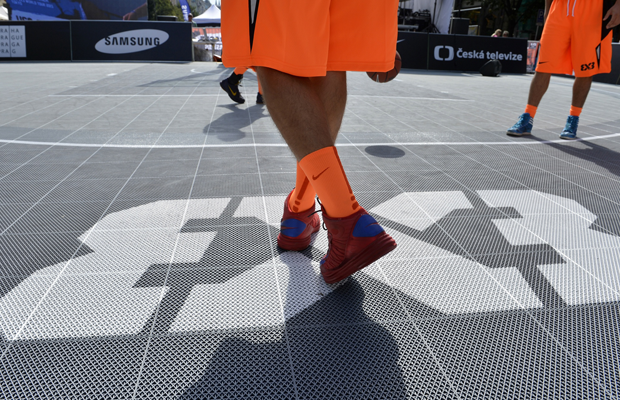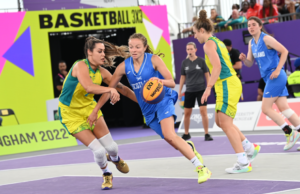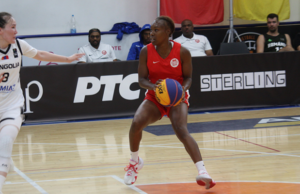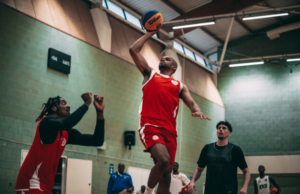3×3 Basketball Added to Olympics From Tokyo 2020

The International Olympic Committee (IOC)’s Executive Board on Friday announced its decision to include 64 athletes (32 men and 32 women) for 3×3 as part of the Olympic Basketball program starting with the Tokyo 2020 Olympic Games.
The decision is a culmination of a decade-long FIBA campaign for its inclusion.
“This is a historic day for FIBA and 3×3”, FIBA Secretary General and IOC Member Patrick Baumann said. “It is the recognition of 10 years of hard work to codify the rules of 3×3 and to innovate with a unique 3×3 digital platform and player ranking system that bring together athletes with private and institutional organisers in a worldwide network of FIBA organised or sanctioned 3×3 events.”
3×3 has officially been accepted into the Olympics Games @Tokyo2020! Thoughts? https://t.co/LtW4uVJUWP
— Hoopsfix 🇬🇧🏀 (@Hoopsfix) June 9, 2017
The competition format, qualification system and the location of the 3×3 venue in Tokyo will be announced at a later stage, as the British Basketball Federation and home nations currently remain behind the curve without a significant formal 3×3 plan. Basketball England, who implemented a 3×3 competition into the EABL and WEABL this season, are believed to be working on a 3×3 strategy that is expected to be implemented in the near future.
Great Britain are currently ranked 58th in FIBA’s Federation 3×3 World Rankings. In 2012, England sent teams to compete in the 3×3 World Championships in Athens, meanwhile, Great Britain won a bronze medal at the 2013 Australian Youth Olympic Festival and England finished fourth in an Under-15 World Tournament in 2015; showing the potential opportunity the sport provides to non-traditional basketball countries.
New event in the @Tokyo2020 @Olympics – #Basketball 3X3 (W/M) @FIBA3x3 pic.twitter.com/llIX5nsFEn
— IOC MEDIA (@iocmedia) June 9, 2017
In 2007, FIBA decided to propose to the IOC to add 3×3 to the 2010 Youth Olympic Games (YOG) in Singapore, which ended up being the first official 3×3 event, with resounding success there and at the 2014 edition in Nanjing, China. With Friday’s decision, 3×3 becomes the first-ever new YOG discipline to be included in the Olympic program.
Since then, 3×3 has grown to the point of having dedicated athletes playing professionally at the TV and social media friendly FIBA 3×3 World Tour and competing in most multi-sport games.
3×3 is widely considered the number one urban team sport, with one of its main attractions being its simplicity to be played anywhere by anybody.
FIBA President Horacio Muratore said: “The intensity and skill level of the 3×3 game is such that there are no traditional 3×3 powerhouses and new countries have emerged since the first YOG experience in 2010. This was our main objective back in 2007.
“The decision provides FIBA with a renewed, strong incentive to continue in this direction and grow the game of basketball by developing new young skilled basketball talents in both genders across the globe from small islands to large countries in every continent.”
Events can be staged indoors like in shopping malls, outdoors on traditional basketball courts or in iconic locations with an efficient and compact temporary stage, always with the goal to bring basketball directly to the people within an urban festival atmosphere.
“The IOC’s decision provides great encouragement for FIBA to continue promoting our urban discipline,” Baumann continued.
“This decision fits perfectly well with the concept of the urban cluster proposed for the 2020 Tokyo Games. Similarly important for us is that it also provides our membership with a new chance for medals at the Olympic Games and that the dream of a path from the streets to the Olympic Games has become reality for all the basketball community and the 3×3 players. We are very grateful to the IOC for today’s decision.”
The 4th edition of the FIBA 3×3 World Cup – the biggest 3×3 national team competition – starts on June 17 in Nantes, France.






0 comments